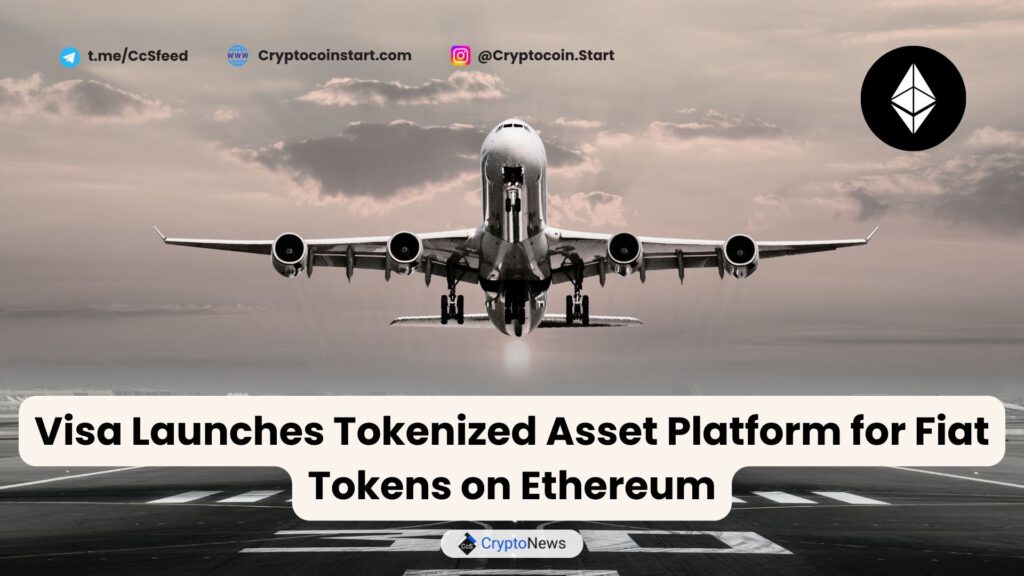
Introduction to Visa’s VTAP
Visa, the largest payment platform globally, has officially launched its Tokenized Asset Platform (VTAP). This innovative product aims to assist banks in issuing fiat-backed tokens on the Ethereum network.
Visa’s Blockchain Exploration
While Visa has maintained a cautious stance towards cryptocurrencies, its interest in blockchain technology has been evident for several years. The company has been actively exploring various blockchain applications and has selectively integrated with other crypto ecosystems, including Polygon and potentially Solana.
Functionality of the VTAP
The VTAP platform is designed to enable banks and financial institutions to create and manage fiat-backed tokens, leveraging smart contracts within the Ethereum ecosystem. These tokens will facilitate the digitization and automation of real-world assets (RWAs), such as commodities, bonds, and other financial instruments, significantly improving settlement speed and efficiency.
Streamlining RWA Exchanges
According to Visa, the platform will enhance the exchange of RWAs by utilizing near-real-time settlement through tokenized assets. The tokenization of RWAs is rapidly emerging, with various projects like Polygon, Tezos, FLOW, and Algorand already showcasing their capabilities in this area.
- Tokenization of RWAs enables enhanced liquidity and accessibility.
- Smart contracts ensure transparency and security in transactions.
- Near-real-time settlements reduce the time required for traditional processes.
BBVA: A Pioneer Pilot Program
The Spanish banking giant BBVA will be among the first institutions to implement Visa’s VTAP, launching a live pilot in 2025. This pilot program will likely focus on issuing and trading tokenized RWAs, offering insights into how traditional banks can operate within blockchain ecosystems.
BBVA’s Previous Engagements in Crypto
BBVA is no stranger to the crypto space. Earlier, the bank partnered with Charlie Lee to expand into the banking sector, allowing its customers to buy and manage Litecoin seamlessly within its app, which is currently available only in Turkey.
Visa’s Ongoing Commitment to Digital Assets
Visa’s move into tokenizing fiat-backed assets on Ethereum reflects its commitment to integrating digital assets into its established framework. In March 2021, Visa made headlines by processing cryptocurrency payments in stablecoin USDC on the Ethereum network, becoming one of the first major payment processors to embrace cryptocurrency at such scale.
Conclusion
Visa’s Tokenized Asset Platform represents a significant step forward in bridging traditional finance and blockchain technology. As banks like BBVA begin to explore these innovations, the future of financial transactions could see increased efficiency and security through tokenized assets.

